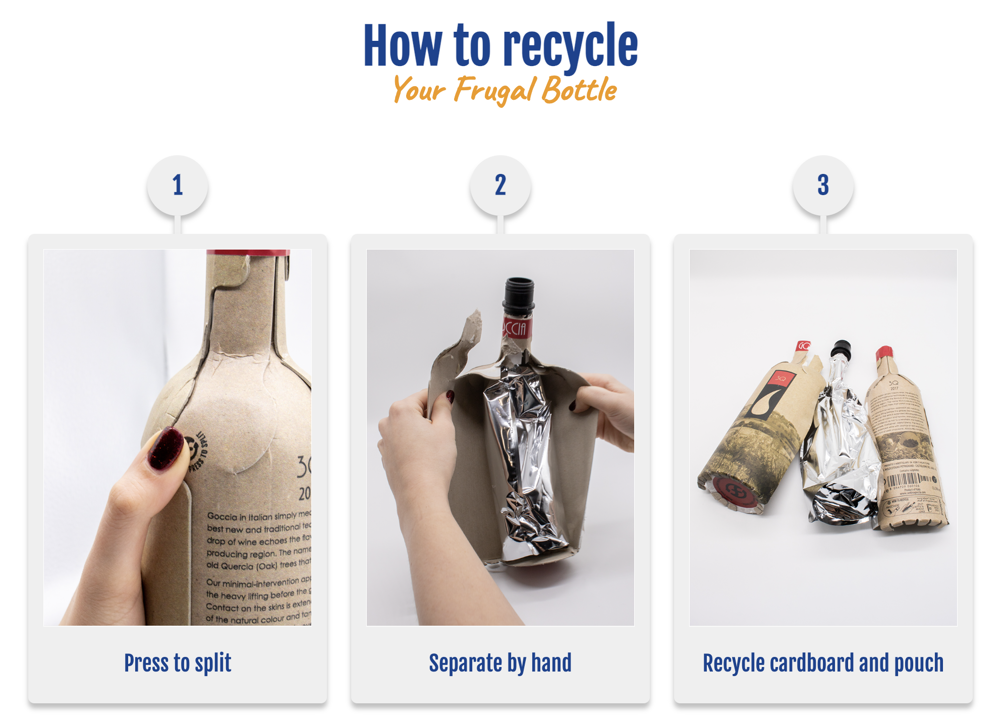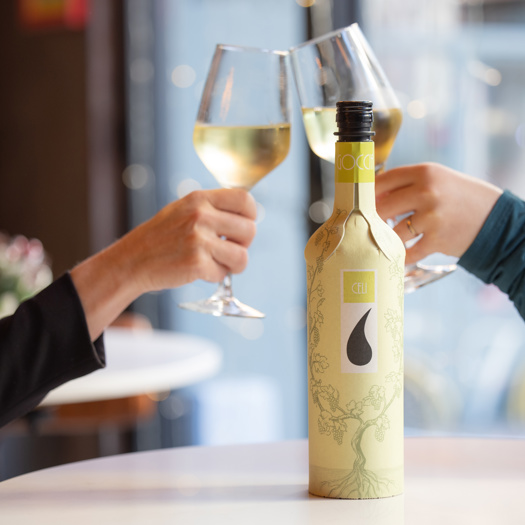The supermarket said the move was a UK first for own-brand wines.
The wines – Cambalala South African Shiraz and Sauvignon Blanc – will be available in the new packaging on 18 March, which is Global Recycling Day.
Frugalpac paper bottles are made from 94% recycled paperboard and have a food grade pouch lining.
The paperboard outer has been designed to be easily separated from the inner pouch, so the two parts can be recycled separately in appropriate waste streams.
Julie Ashfield, managing director of buying at Aldi UK, commented: “Shoppers are striving to become more sustainable in their everyday lives, looking for small ways to make a big difference for our planet.
“Our Buying Teams are continuously thinking of how we can evolve our ranges to offer greater value and greener choices. We are proud to be the first supermarket to launch an own-brand paper bottle, helping to drive sustainable change.”

Aldi said the carbon footprint reduction “is equivalent to driving around the planet 5.8 times”.
Frugalpac CEO Malcolm Waugh said the Frugalpac team were thrilled about the fresh partnership.
He said: “Our ambition has always been to allow more people the opportunity to enjoy our paper Frugal Bottles, giving them greener choices. Launching in a major UK supermarket means more shoppers can now drink responsibly and sustainably and we are so pleased to be part of that journey.”
In a separate move, Aldi is also reducing the size of the 100% recycled paper, FSC certified wine labels used on its Grapevine range. This initiative is due to roll out across all core lines by 2026.
Aldi’s sustainability pledges include reducing plastic packaging by 50% by 2025 (against a 2019 baseline); with an overarching goal of reducing all packaging by 50% by 2025, against a 2015 baseline.









